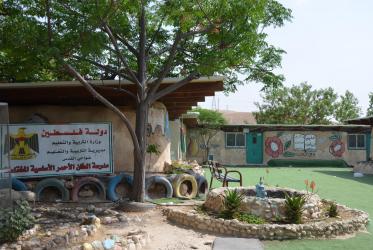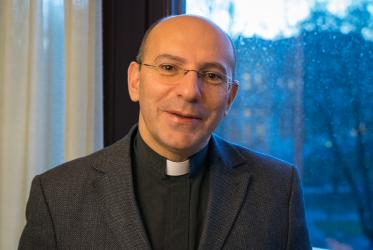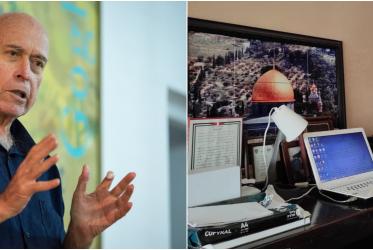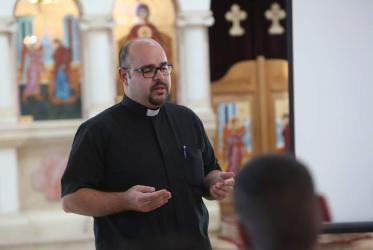Displaying 81 - 100 of 307
30 March 2021
Jericho - Walking in the Footsteps of Jesus
30 March 2021
Palestinian Christian peace worker yearns for courageous leaders
10 December 2020
A hopeful, but not optimistic Palestinian ecumenist
09 December 2020
As olive harvest draws to a close, who is helping the farmers?
08 December 2020
Fr Jamal Khader: “We need to keep hope alive” in Palestine
25 November 2020
In Palestine, “God honored this olive tree”
12 November 2020
“Olive trees are holy signs of peace, older than anyone”
22 October 2020
Christian Aid CEO: “There is power in a praying community”
28 September 2020













